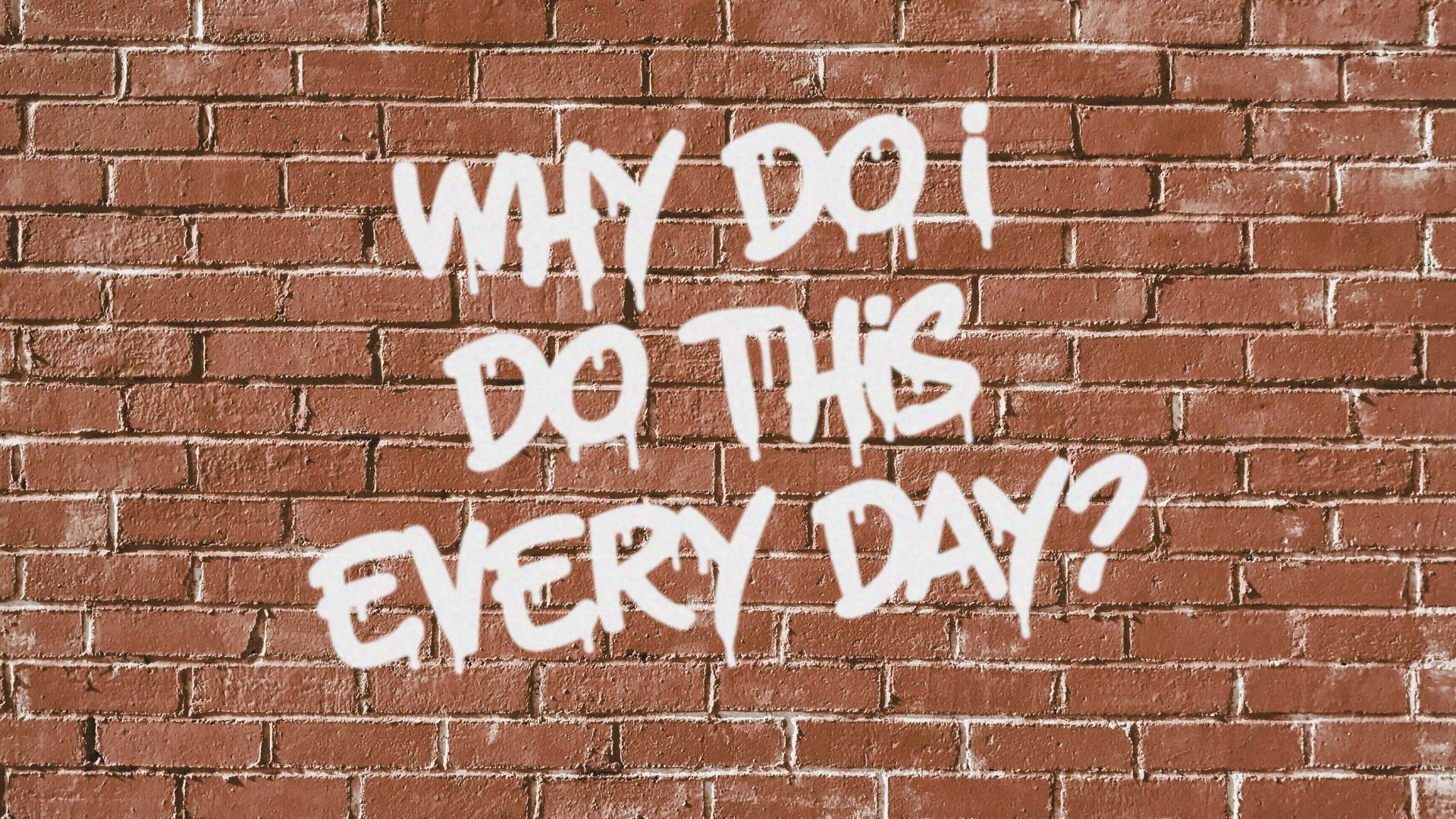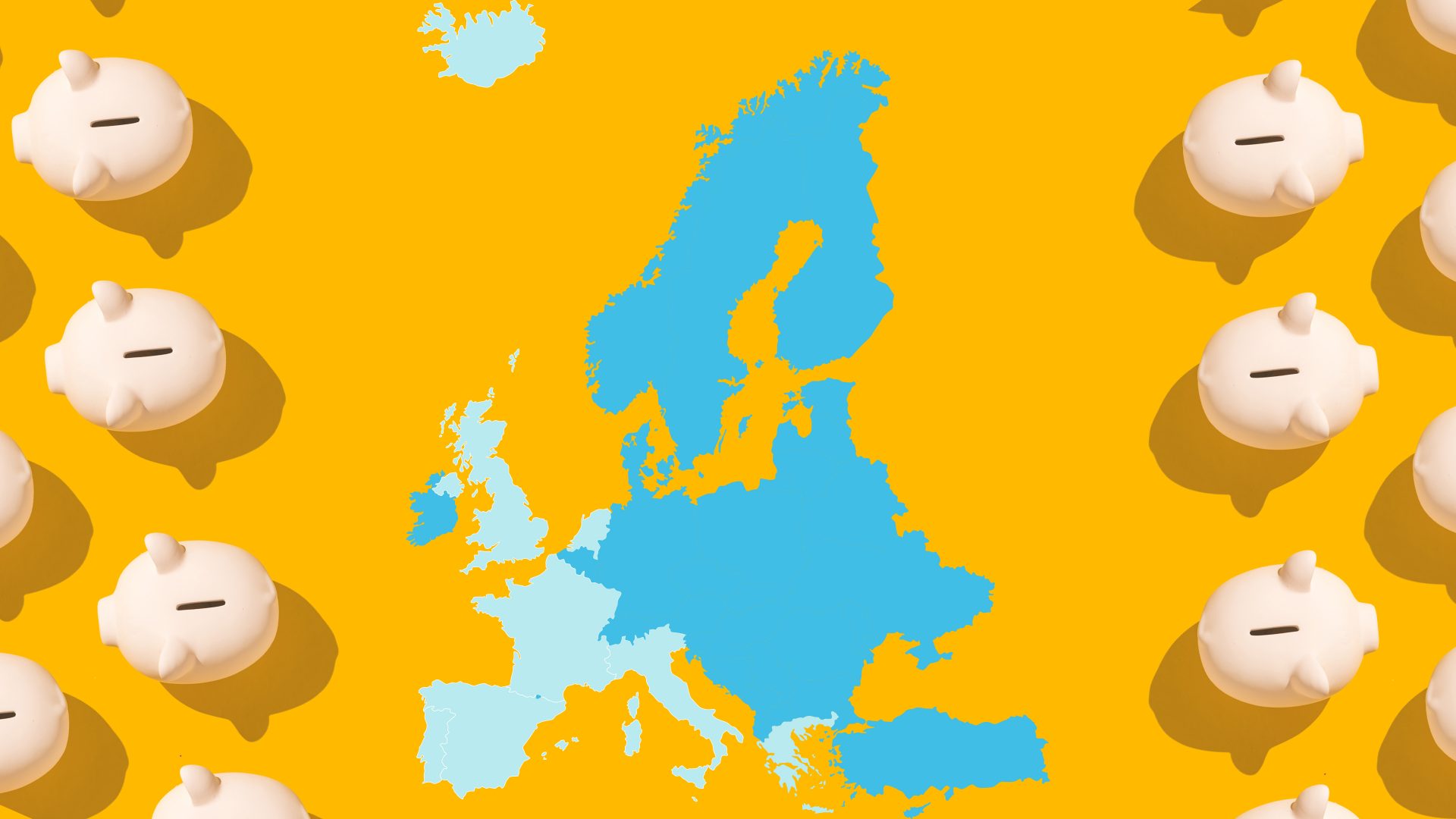“Why do I do this every day?” These words used to be painted across a fence on a hill that everyone driving towards London on the M40 could see. Actually, it was “Why do I do this everyday?” but, despite the grammatical error, it was a powerful question. It must have prompted thousands of commuters stuck in traffic to reflect on what on earth they were doing with their lives.
The words were painted over by South Bucks Council in 2012. Their statement explained that “a self-declared intellectual has constantly been sharing unwanted armchair philosophy by way of graffiti sprayed on to a long fence”. After various other slogans, the words “Why do I still do this everyday?” eventually re-appeared there, but the “still” broke the poetic rhythm. That has now gone, too.
“Unwanted by whom?” is the question I want to ask the council. What sort of person complained about a simple prompt to self-reflection? That graffiti always felt like an intervention by an existential artist. It asked the question Albert Camus asked in his book The Myth of Sisyphus (first published in 1942).
Camus, whose birthday it was on Monday (born November 7, 1913), led a full, but relatively short life – he died in a car crash in 1960, aged 46. By then he had written the classic existentialist novella The Outsider, the pandemic bestseller The Plague, and much more besides. He’d been a prolific journalist, argued publicly with Jean-Paul Sartre, won the Nobel prize for literature, and become a sex symbol. He looked more like a film star than a philosopher. But above all, he is now remembered for his repurposing of the Greek myth of Sisyphus.
He began The Myth of Sisyphus by declaring that the only serious question was suicide, the question of whether we judge life worth living or not. He removed the “how” from the Socratic question “How should we live?” As an atheist, he denied that meaning could come from outside, or that there was an afterlife to make sense of it all. Life was absurd.
Camus described a worker’s routine: “Rising, street-car, four hours in the office or factory, meal, street-car, four hours of work, meal, sleep, and Monday Tuesday Wednesday Thursday and Friday and Saturday according to the same rhythm.” One day the worker gets up, but is weary with it all, amazed and disconcerted by this mechanical life. He starts to doubt the value of anything. Why carry on?
It’s sacrilege to say this, but most of the book after that is a meandering series of observations and assertions drawing on ideas from Kierkegaard, Dostoevsky, Nietzsche, Husserl, and others. It could have done with a good edit. To be fair to Camus, though, he wrote it under the stressful conditions of Nazi occupation. But it comes into crystalline focus in the chapter that gives its name to the book.
There he reimagines the story of Sisyphus, whose punishment for having angered the gods was to roll a huge boulder up a mountain, which when near the top would roll all the way back down again. He had to trudge down the mountain and repeat this for ever. Same boulder, same exertion, same thwarted struggle, same route down. Begin again. Repeat. Repeat. Repeat.
Sisyphus’s plight is a metaphor for the human condition. Camus imagines him reflecting on what the point of it all is during those moments of reprieve as he walks back down the mountain. Unlike us, Sisyphus can’t choose to end it all. He’s stuck with this. But we engage in repetitive meaningless struggles like him.
We find ourselves in an absurd world, and try to find objective meaning, but it always eludes us. We ask questions about why we are here and what it’s all about, but the universe remains silent. We get set in our routines in life. This could just lead to despair and nihilism. But Camus’s Sisyphus begins to think of this pointless task as his task, the mountain as his place, this is his rock. Gradually his activity seems less futile.
Camus ends the book by declaring that “we must imagine Sisyphus happy” (or, as I wish someone had translated it, “It’s only rock and roll, but I like it”).
We won’t discover the meaning of life, but we should still say yes to the world, our world, in all its absurdity. Camus doesn’t say this, but we’re better off than Sisyphus, too. Unlike him, we know that we won’t be rock and rolling for ever.



